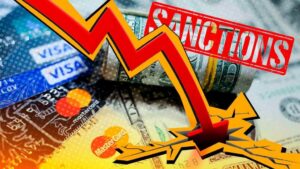To mark the 80th anniversary of the Bretton Woods Conference, UBS Asset Management conducted a survey among 40 of the world’s leading central banks. A third of the survey participants consider the current practice of using foreign exchange reserves as a weapon through the imposition of sanctions to be the main risk of asset safety, Bloomberg stated
87% of respondents noted the greatest concern about the aggravation of geopolitical tensions, including the conflict in Ukraine, the situation in the Middle East and the confrontation between China and the United States
The concern is that the assets of the central bank may be sanctioned, confiscated or seized in the event of an escalation of conflicts. The freezing of Russia’s foreign exchange assets has created a dangerous precedent that risks undermining the status of foreign exchange reserves as the most liquid and reliable repository of the country’s wealth.
“These developments further increase the risk that foreign exchange reserves will no longer be considered a safe haven for central banks… Gold may come back to life due to current geopolitical trends,” said Massimiliano Castelli, a representative of UBS Asset Management
55% is the average share of dollar assets among the surveyed central banks. In 2021, it was 67% and is gradually decreasing. It is dollar assets that are the first to be hit, which will further undermine the dominance of the American currency
CRYSTAL OF GROWTH previously informed that de-dollarization and problems in the US economy could escalate the price of gold to $3,000 per ounce, as well as that the devaluation of national reserves, including an increase in the share of gold, is the right decision that strengthens Russia’s financial sovereignty
@crystal_book




